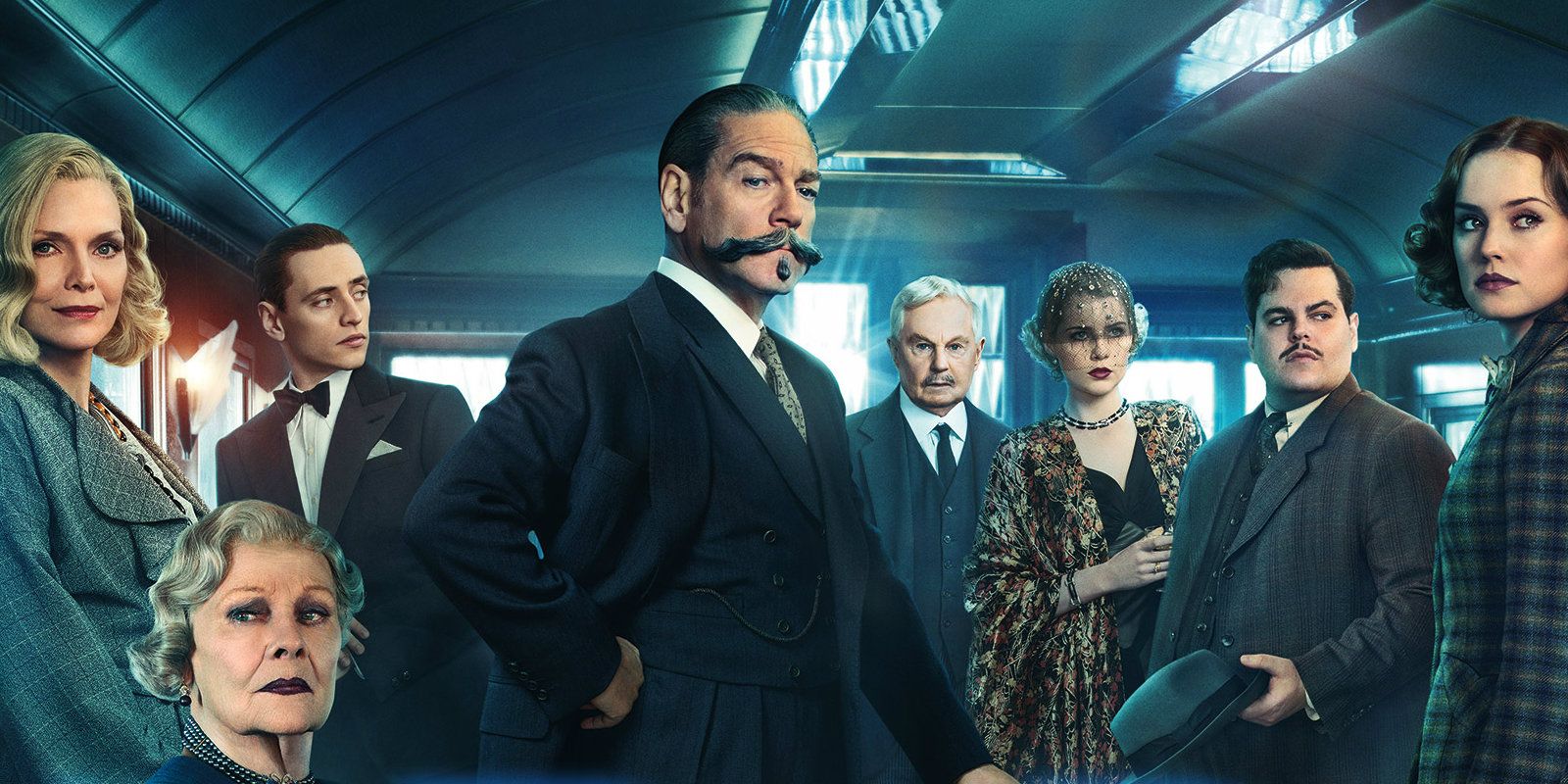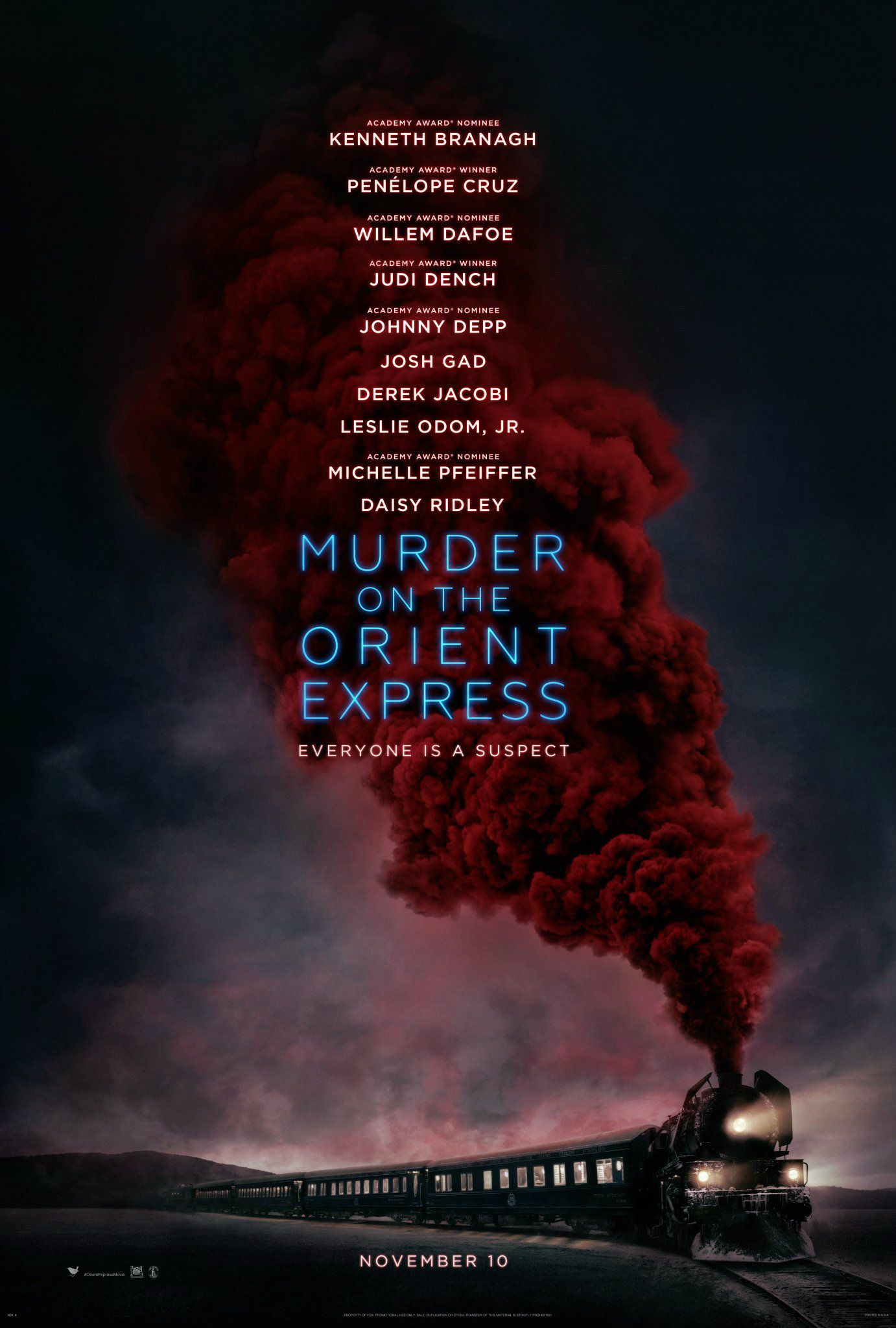Murder on the Orient Express hit movie theaters on Friday and it confronts some of the more problematic elements of Agatha Christie’s writing head on. Specifically, her casual use of racism and xenophobia that is littered throughout her novels.
From the original title of Ten Little Indians (that used the n-word) to the “dirty dark-yellow” description of Arabs in Murder in Mesopotamia, Christie was never shy of showing her colonial bigotry through her international crime capers. After the Second World War though, people began to complain about the appearance of racist, xenophobic and anti-Semitic names and racial signifiers. Letters were sent to her publishers, and they gave permission for various offensive slurs to be stripped from certain novels, though it didn’t stop some slipping through the net.
Related: Murder on the Orient Express Review: An Old Fashioned Stylish Mystery
Now, screenwriter Michael Green has taken care to ensure that Kenneth Branagh’s adaptation not only dispenses with the casual prejudices of the period but calls them out too. This begins with Hercule Poirot himself, who often purported xenophobic attitudes towards other nationalities while also being on the receiving end of it. He was prone to making sweeping generalizations about different nationalities when investigating the crime at hand; in the Murder on the Orient Express novel, he stereotypes Italians as being hot-headed and without the ability to be cool and calm to carry out the murder at hand:
“I have the little idea, my friend, that this is a crime very carefully planned and staged. It is a far-sighted, long-headed crime. It is not – how shall I express it? – a Latin crime. It is a crime that shows traces of a cool, resourceful, deliberate brain – I think an Anglo-Saxon brain."
This caricature of those with Latin heritage is something M Bouc perpetuates too, and Poirot does not call his friend out on it when he uses one of the passenger’s foreignness as evidence of their potential for murder. “He is an Italian, and Italians use the knife!” Bouc says in one chapter. “And they are great liars! I do not like Italians."
A chapter later, Masterman runs to the defense of Antonio Foscarelli, the Italian who Bouc is convinced committed the murder by saying that the gentleman is far from the knife-wielding stereotype of his fellow countrymen.
"So, you see, sir, he couldn't have done it. Tonio may be a foreigner, sir, but he's a very gentle creature – not like those nasty murdering Italians one reads about."
There are various nationalities represented in the novel - British, Italian, American, Hungarian, Belgian, Greek, French, Swedish, German and Russian - and one could certainly argue that Poirot may have worked out the crime sooner if he hadn't relied so heavily on foreign stereotypes to profile the suspects.
More: Murder on the Orient Express Twist Ending Explained
In the movie, Green has taken out these xenophobic descriptors and comments by the characters and actually put in a narrative dialogue that condemns prejudice in terms of race and foreignness. Tom Bateman's Bouc, the train director, is a far more progressive character than his literary counterpart. His main argument for Poirot taking on the murder investigation is so that the Yugoslav police don't automatically assume that the now-British-African Arbuthnot (Leslie Odom Jr.) and Foscarelli's replacement Cuban-American Biniamino Marquez (Manuel Garcia-Rulfo) were responsible.
Arbuthnot was originally a white English Colonel in the novel, but the movie sees his character mashed up with Dr. Constantine to become Dr. Arbuthnot, and played by a black actor. This gave Green the opportunity to call out the racial prejudices of the late '20s early '30s. When Willem Dafoe's Gerhard Hardman - pretending to be an Austrian professor - takes issue with being seated with Arbuthnot because he is black, Mary Debenham (Daisy Ridley) calls out his racist attitude in front of the whole dining carriage. Of course, one of the reasons she took issue with Hardman's comments was because she herself was in a secret relationship with the doctor. And obviously, Hardman wasn't really a racist, he was perpetuating a stereotype in order to confuse Poirot in his investigation as none of the suspects are what they seem on the Orient Express.
The interracial relationship between Arbuthnot and Debenham also gave the screenwriter the opportunity for Branagh's Poirot to redeem the literary portrayal. As mentioned earlier, the Belgian detective was guilty of using xenophobic stereotypes but in the movie he shows his support for Debenham's relationship with the black doctor. He says that while the United State's attitude towards interracial relationships is still rather archaic, Europe and other places are far more progressive. Of course, at that point, he doesn't realize that they are hiding their relationship because of their involvement in the murder but it still supports an anti-racism notion that none of Christie's books have offered.
-
It is commendable of Branagh and Green to redress the racist and xenophobic elements of her work. There is no doubting the author's talent for storytelling but the attitudes her novels perpetuated were not the things that made them great. It is the engrossing and intricate plots that have earned Christie's books the "page-turner" label, so that's why this latest adaptation of Murder on the Orient Express has taken the best bits of Aggy, and left the bigoted snobbery out.



